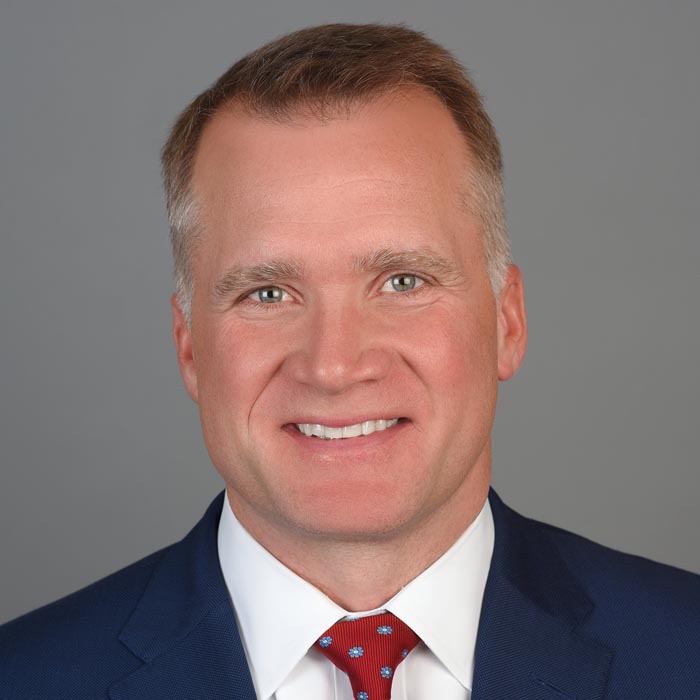FundFire: Hedge Funds Bolster Moves into Real Estate
NEPC’s Dulari Pancholi was quoted in a recent FundFire article highlighting an upward trend in hedge funds moving into the real estate space over the past decade.
Big hedge funds that have planted a flag in the real estate asset class appear to be thriving in their adopted markets with new vintages and fundraising efforts – an example of diversification that more of their peer managers might emulate as a way to tap potential growth.
. . .
Extending into real estate can be beneficial to hedge funds, said Dulari Pancholi, a partner leading the credit and multi-asset teams at NEPC.
“Over the past few years, hedge funds have gone through their own struggles,” she said. “If they’re able to build a differentiated business that is a longer-dated product, it locks in a revenue stream that is different and not reliant on just the hedge fund model [where] assets can ebb and flow. So, that brings a little stability to the firm.”
There has been an “upward trend” of hedge funds developing real estate arms over the last decade, especially targeting credit and distress-driven strategies, Pancholi added.
Read the full article on FundFire’s website here.
FIN News: Q2 2023: Private Infrastructure Offerings Gain Steam, Contribute To Hire Uptick
NEPC’s Matthew Ritter was recently featured in FIN News’ Q2 hiring analysis report. View the full article on FIN News’ site here.
Institutional commitments to private infrastructure funds increased in the second quarter given attractive characteristics—like providing an inflation hedge or cash yield—and product offerings that have gained steam in recent years, a trend that will likely continue into the second half of 2023 and beyond.
. . .
“While private market budgets have been somewhat muted in 2023, investment consultant NEPC expects to see continued growth and interest in infrastructure investing.
“Those mandates or those new commitments follow a trend in recent years of more and more investors adding infrastructure as a target allocation in their overall portfolio,” NEPC Partner Matthew Ritter said.
NEPC’s Quarterly Asset Class Review for the second quarter found that the Standard & Poor’s Global Infrastructure Index, which tracks 75 companies globally across the listed infrastructure space within a sector breakdown that includes utilities, industrials and energy, was “flat” for the quarter at -0.1%.
However, NEPC noted that it “continues to “favor private markets when it comes to implementing infrastructure in a portfolio.””
. . .
“NEPC’s Ritter, who heads the Boston-based firm’s Real Assets Investments Team, has also noticed growth in infrastructure strategies in recent years.
“That growth is continuing and perhaps more importantly, this space has evolved quite a bit and so infrastructure today offers investors a much wider array of strategies than was available even just a few years ago. There may be attractive investment opportunities regardless of what an investor’s return objectives or risk appetite might be,” he said.”
. . .
“NEPC finds there are attractive opportunities in the more thematic areas of infrastructure such as digital and communications.
“Some of the themes that we are focused on are segments of the infrastructure market that have very strong and resilient demand tailwinds, so more specifically that would be things like digital infrastructure and capitalizing on the continued growth of data consumption and transmission globally, as well as energy transition themes. So, not just renewable power generation but also all the ancillary assets, infrastructure services, that come along with that, whether it’s improving electricity transmission [or] grade upgrades,” Ritter said.”
. . .
“Ritter, who has been with NEPC for over 11 years covering real asset investments, indicated that at a high level, infrastructure can provide a lot of benefits to a portfolio like current income, diversification, but it is also reflective of what else is going on in client portfolios.
“More specifically for some clients, you’re seeing infrastructure as an alternative to more traditional oil and gas strategies that may have previously made up a real asset allocation. Across private markets, there may be some more uncertainty in places like real estate or some private equity strategies that [we] think infrastructure is seeing the benefits of,” he said.
“Infrastructure can provide diversification benefits just by the nature of having demand drivers and cash flow that is generally not correlated to things like GDP growth, and that results in generally low correlation to traditional stock and bond-types of investment opportunities,” Ritter continued.”
Pensions & Investments: More Data Means Improved DC Offerings
NEPC’s Emma O’Brien was quoted in a recent Pensions & Investments article which focuses on why stakeholders are cautious over generative AI. View the article on Pensions & Investments’ site here.
These days, the use cases for generative artificial intelligence are ever expanding— SEC Chairman Gary Gensler has called it the “most transformative technology of our time,” on par with the internet and the mass production of automobiles —but while retirement industry stakeholders say the tool will have major implications for defined contribution plans one day, record keepers and service providers are taking a cautious approach.
. . .
Although generative AI is an incredible tool, the application is risky for DC plans in its current state, said Emma O’Brien, Boston-based senior consultant for the NEPC LLC defined contribution team.
“The tool can become self-confident; there’s the chance of hallucinations, meaning the model can generate false outcomes or information, so while it’s powerful, the application needs to be regulated to protect participants,” she said. “We’re hearing from record keepers that are in the early stages of testing the application that they’re going to be really cautious for now.”
. . .
Willis Towers Watson’s Mr. Levinson and NEPC’s Ms. O’Brien each said their firms do not ask for participants’ personally identifiable information, but do seek data like age and the investments to which participants are allocating.
“Record keepers have the ability to provide very useful plan data which NEPC can leverage to provide customized advice for each plan based on the participant base,” Ms. O’Brien said.
NEPC analyzes plan data to estimate each participant’s expected risk and return based on their allocation as well as the expected risk and return for each option in the plan, she added. “Through that study we’ve been able to improve participant outcomes because they can help us quantify an overall risk profile that might be higher or lower than desired, and it can identify holes in the lineup or find unintended redundancies between investments,” Ms. O’Brien said.
Click here to continue reading the full Pensions & Investments article.
Pensions & Investments: U.S. College Endowments Add Inflation to Worry List
NEPC’s Kristin Reynolds was quoted in a recent Pensions & Investments article which focuses on why colleges might need to revisit risk and returns. View the article on Pensions & Investments’ site here.
A continuing “enrollment cliff” combined with rising interest rates and other worries are making risk a larger issue for college endowment officials, advisers say.
. . .
The use of outsourced CIO providers, a trend that saw rapid growth a decade ago, is still seeing growth, said Kristin Reynolds, Boston-based partner of endowment and foundations at investment consulting firm NEPC LLC, with $110 billion in endowment and foundation assets. The pressure on advisers to deliver performance, or be replaced, has also grown, she said.
While her firm is seeing a shift in what colleges spend money on, their endowments are still cash positive and not changing asset allocations. There is more talk about downside risk, but not much change in endowment’s risk profiles so far, Ms. Reynolds said.
A more immediate concern for endowment clients are private equity valuations, leading them to differentiate by vintage years and push for lower fees. “We have seen managers being more creative with their fees” to satisfy client demand, Ms. Reynolds said.
. . .
When it comes to responsible investing or environmental, social and governance considerations, “in the endowment space the news is still somewhat the same,” with investors asking for proactive solutions rather than bold moves such as divestment or exclusion, Ms. Reynolds said, and more interest in addressing social issues like diversity, equity and inclusion than tackling climate change, which can be trickier to measure and target.
Click here to continue reading the full Pensions & Investments article.
Pensions & Investments: Fewer 401(k) Plan Lineup Changes in 2022 as Fee Wars Quiet Down
NEPC’s Emma O’Brien was quoted in a recent Pensions & Investments article which focuses on 401(k) lineup changes. View the article on Pensions & Investments’ site here.
More than 60 U.S. corporate 401(k) plans in 2022 made changes in their investment options lineups, down from over 100 plans the previous year.
Slightly less than 8% of 11-K filings showed plans that made at least one investment option change during the year, with the majority affecting individual equity options, a Pensions & Investments analysis of recently released 11-K filings showed.
. . .
Emma O’Brien, Boston-based senior consultant at NEPC LLC, said that such a consolidation of core investment options has been driven by the trend of target-date fund lineups continuing to attract assets, meaning that fewer assets are being invested in core investment options menus.
“Sixty-three percent of all contributions are being invested in target-date funds, which is another indicator that target-date funds will continue to shrink that core menu,” Ms. O’Brien said in a phone interview.
Click here to continue reading the full Pensions & Investments article.
The Bond Buyer: Munis Weaker but Outperform UST Selloff After GDP Report
Phillip Nelson was quoted in a recent article by The Bond Buyer to discuss his prediction on inflation hikes through the remainder of 2023. View the article on The Bond Buyer’s site here.
Muni yields rose Thursday, following and outperforming a U.S. Treasury sell-off on the heels of strong-than-expected economic data. Equities ended down.
Thursday’s “economic data offers the latest evidence that the U.S. economy is weathering the fastest rate hikes in a generation without much damage to the major gear-works of the economy,” said Wells Fargo Securities senior economist Tim Quinlan and economist Shannon Seery.
. . .
Depending on inflation levels and price changes, Phil Nelson, head of asset allocation at investment consulting firm NEPC could see one or two more hikes by the end of this year.
“Nothing has changed in terms of how the Fed balances the set of risks, and they want to see data confirmation,” he said.
FIN News: NEPC Names New Foundation & Endowment Team Leader
Kristine Pelletier was recently announced as NEPC’s new Endowments & Foundations team leader. View the article on FIN News’ site here.
The firm recently named a partner as the new team leader for its foundation and endowment practice.
. . .
Pelletier is tasked with finding investment strategies that achieve clients’ multiple objectives and is responsible for strategic planning, client service and team development, according to the spokesperson.
She also leads research efforts for NEPC’s philanthropic clients and works to develop investment policies, conduct asset allocation studies, provide investment manager due diligence and research projects, according to her biography on the firm’s website.
Pelletier, who began in the role July 1, has served as a senior member of the Boston-based firm’s endowment and foundation practice and will continue in her role as partner, co-head of its impact investing committee and member of its DEI govern board, according to the spokesperson.
Pensions & Investments: Demand Growing, but Searching and Hiring Not Necessarily Easier
NEPC’s Steve Charlton was quoted in a recent Pensions & Investments article which focuses on the recent popularity of OCIOs and the challenges institutions are now facing logistically when transitioning from their current solution to an OCIO. View the article on Pensions & Investments’ site here.
The growing popularity of OCIOs is making it easier for asset owners to access the right providers, but sources are split over whether the search and hiring process is getting easier for institutions.
. . .
TIFF Advisory, a subsidiary of TIFF Investment Management, had $8.3 billion in outsourced AUM as of March 31, up 6.4% from a year prior.
But Steve Charlton, Boston-based head of client solutions and partner at NEPC LLC, countered that the hiring process is not getting easier.
“The growth of third-party evaluation firms as the stewards of OCIO searches has required the OCIO industry to invest in additional resources and capabilities to answer more in-depth questions coming from TPEs,” he said in an email. “TPEs generally take a deeper dive during the due-diligence process relative to asset owner-driven RFPs, so the hiring process is not getting easier in the OCIO space.”
NEPC reported $61.5 billion in outsourced AUM as of March 31, slightly below its $61.7 billion figure a year prior.
Click here to continue reading the full Pensions & Investments article.
Pensions & Investments: Participant Interaction Minimizes Losses
NEPC’s Emma O’Brien was quoted in a recent Pensions & Investments article which focuses on Defined Contribution trends despite last year’s market meltdown. View the article on Pensions & Investments’ site here.
Despite last year’s equity and fixed-income rout, DC participants and sponsors take long-term view.
. . .
Last year’s market meltdown didn’t derail certain DC trends and didn’t trigger new ones, said Emma O’Brien, the Boston-based senior consultant for the NEPC LLC defined contribution team.
Clients maintained their long-term perspective, Ms. O’Brien said, adding that the industry doesn’t make quick changes.
“What will drive changes is target-date funds” at the expense of core menu options, she said.
. . .
Ms. O’Brien said there were “no significant trends in outflows” from DC plans last year. In 2023, some clients will review their investment structure, a typical client response.
“We’ve heard limited feedback from plan sponsors that participants are asking for change in lineups, and that’s driven by the fact that our clients generally have well-structured investment menus that offer core menu options that span the risk spectrum,” she said. “Participants have the option to be conservative, aggressive, or somewhere in between based on their own goals or their market views.”
Click here to continue reading the full Pensions & Investments article.
FIN News: NEPC Names New Public Funds Practice Head
Margaret Belmondo was recently announced as NEPC’s new Public Funds practice head. View the article on FIN News’ site here.
New public funds practice head first joined the firm in 2016 and was named partner in 2020.
. . .
Margaret Belmondo, partner at investment consultant NEPC, will head the firm’s public funds practice effective July 1, according to live video of today’s Howard County (Md.) Retirement Plan board meeting.
“We promised you, we are not changing [consultants]. I know when you make these types of announcements these are questions we get and the answer is no,” Kevin Leonard, partner and current head of the public funds practice, told the board.









